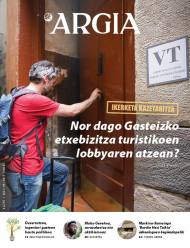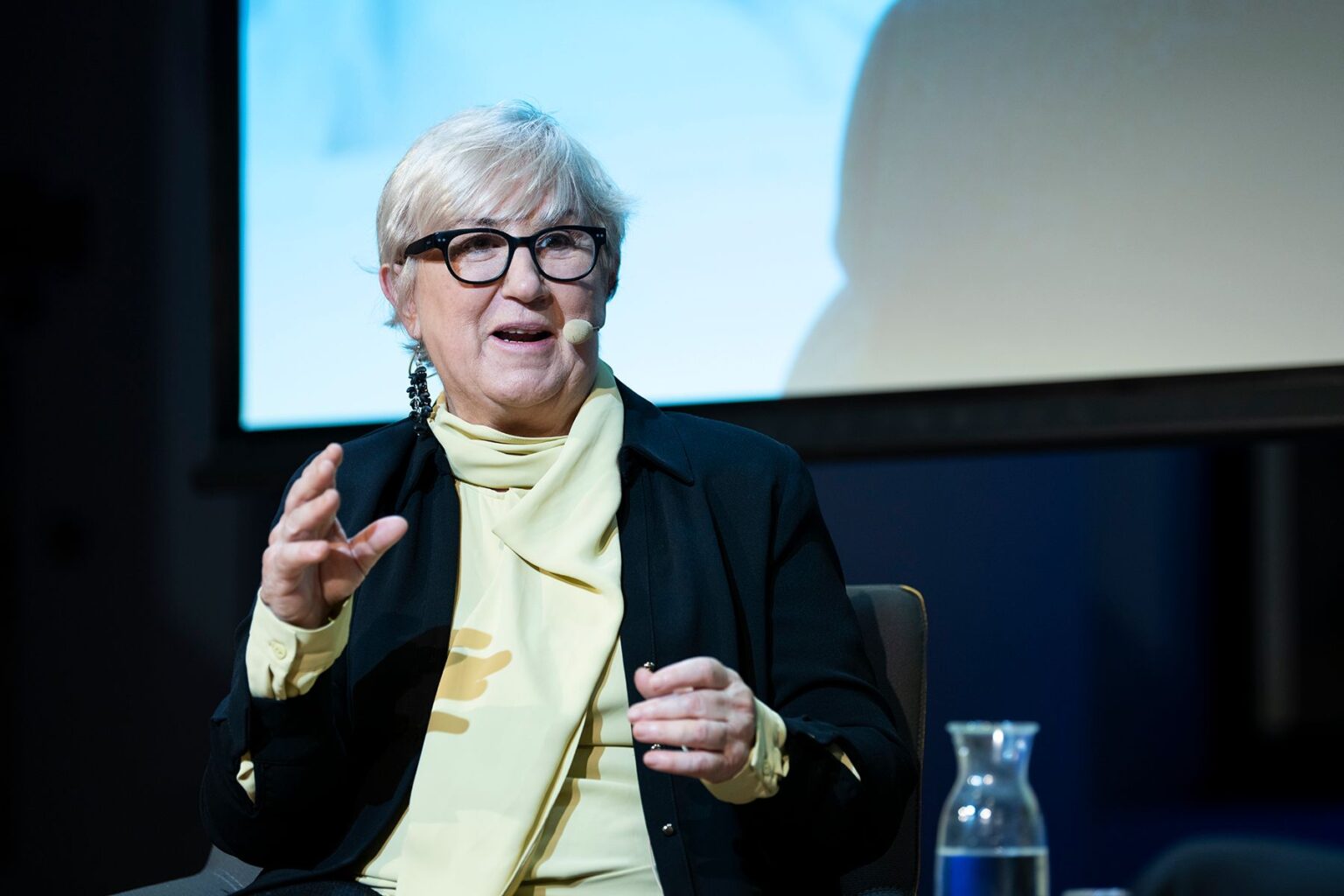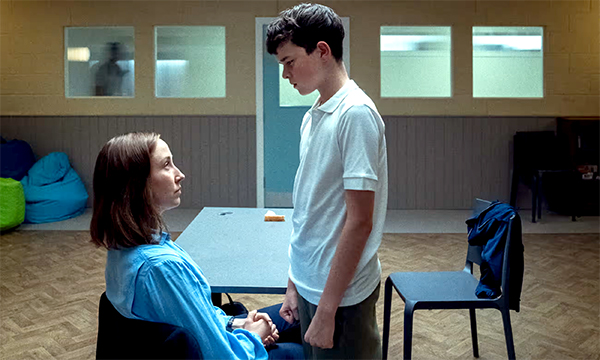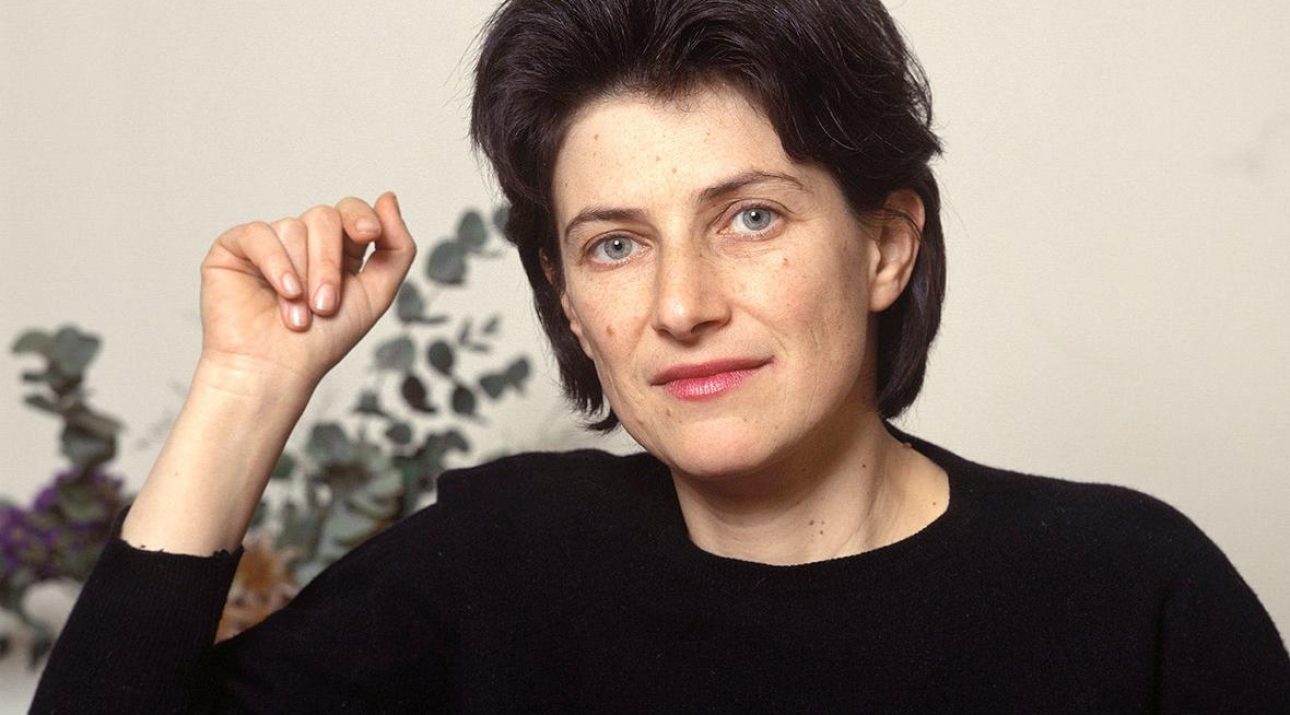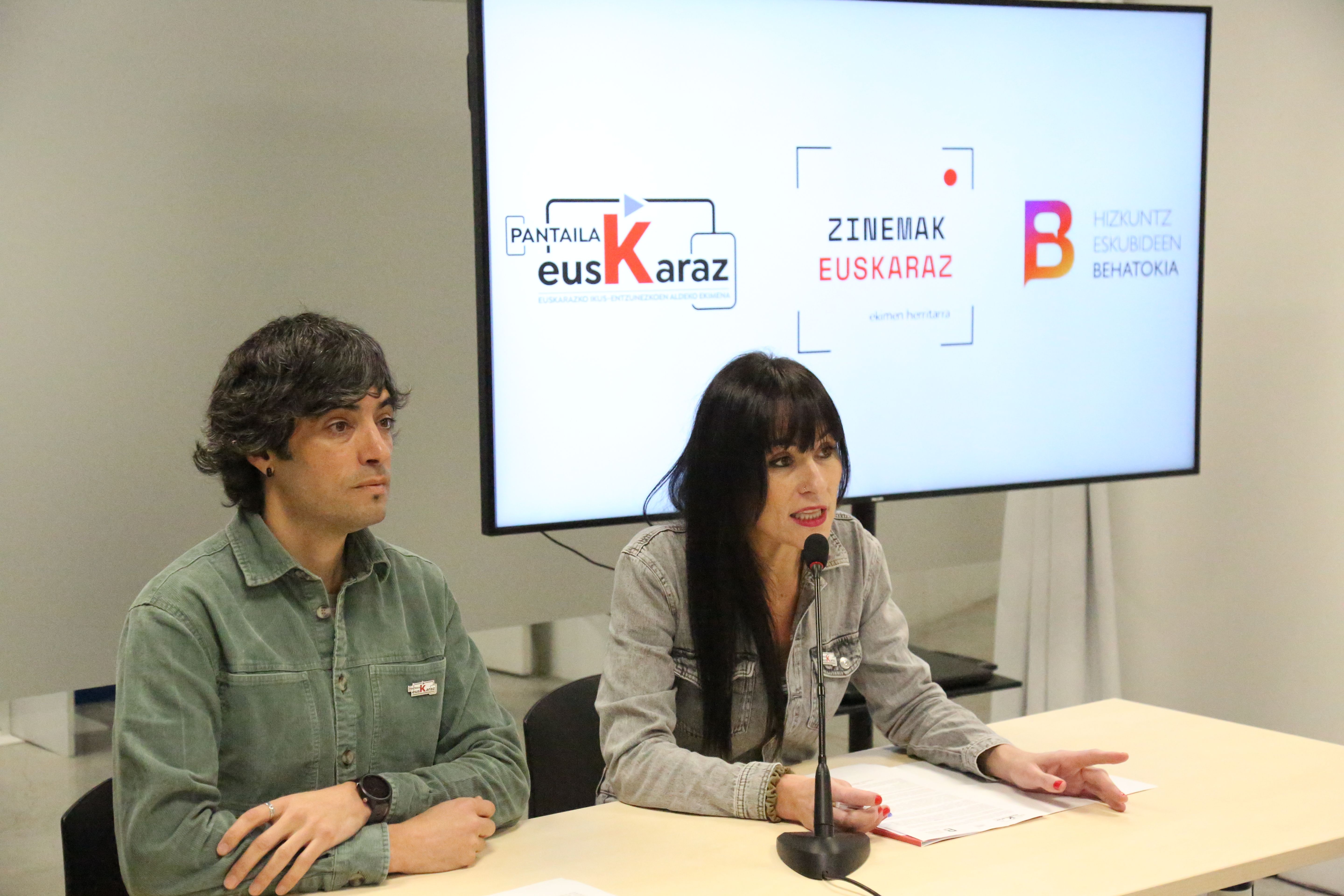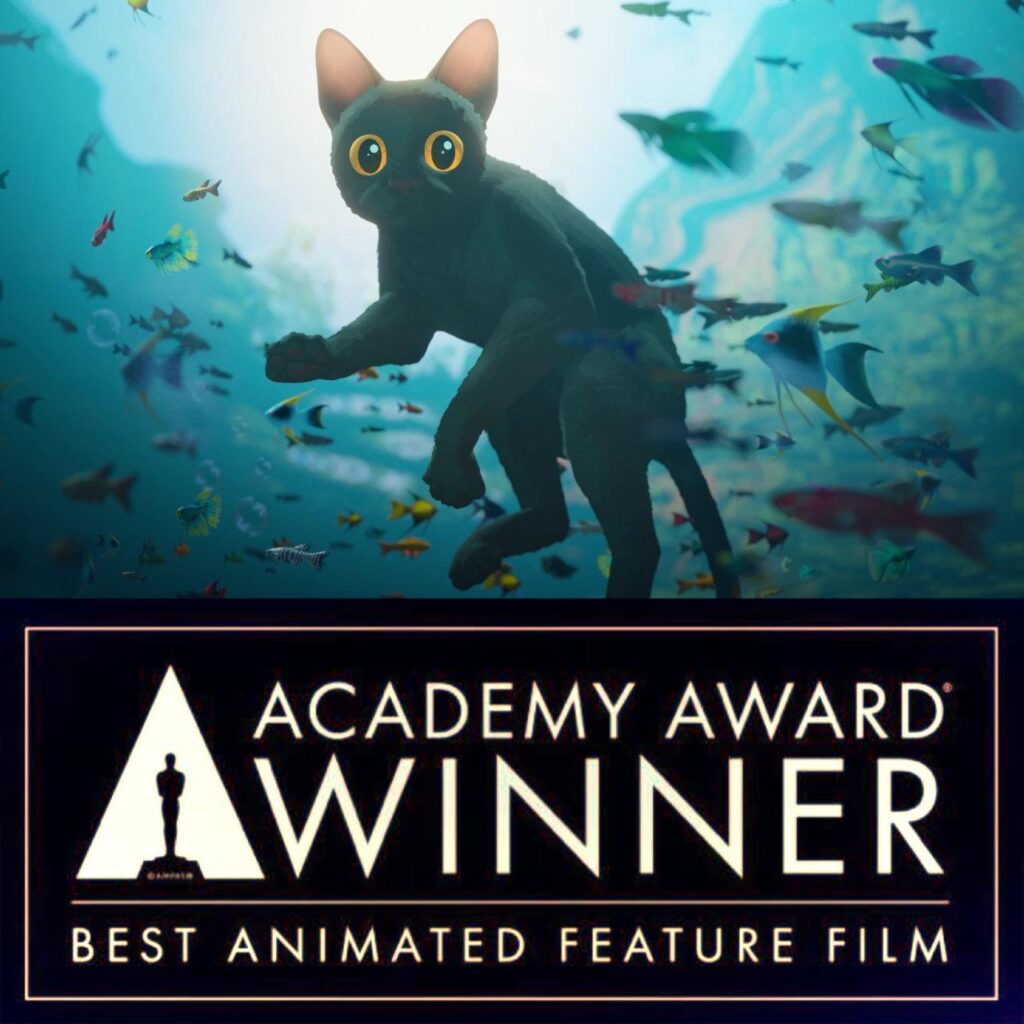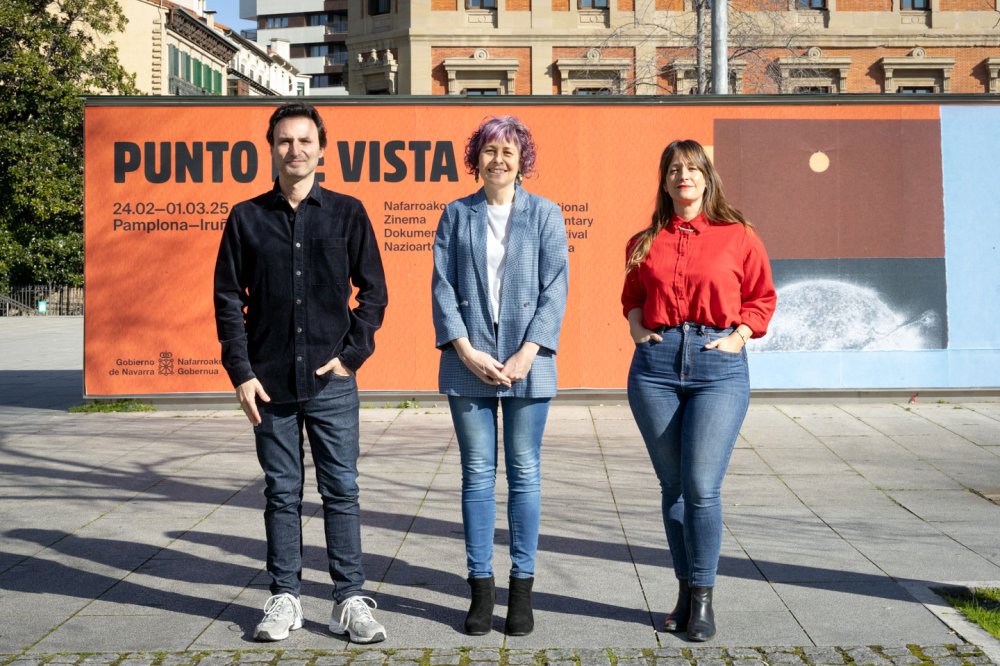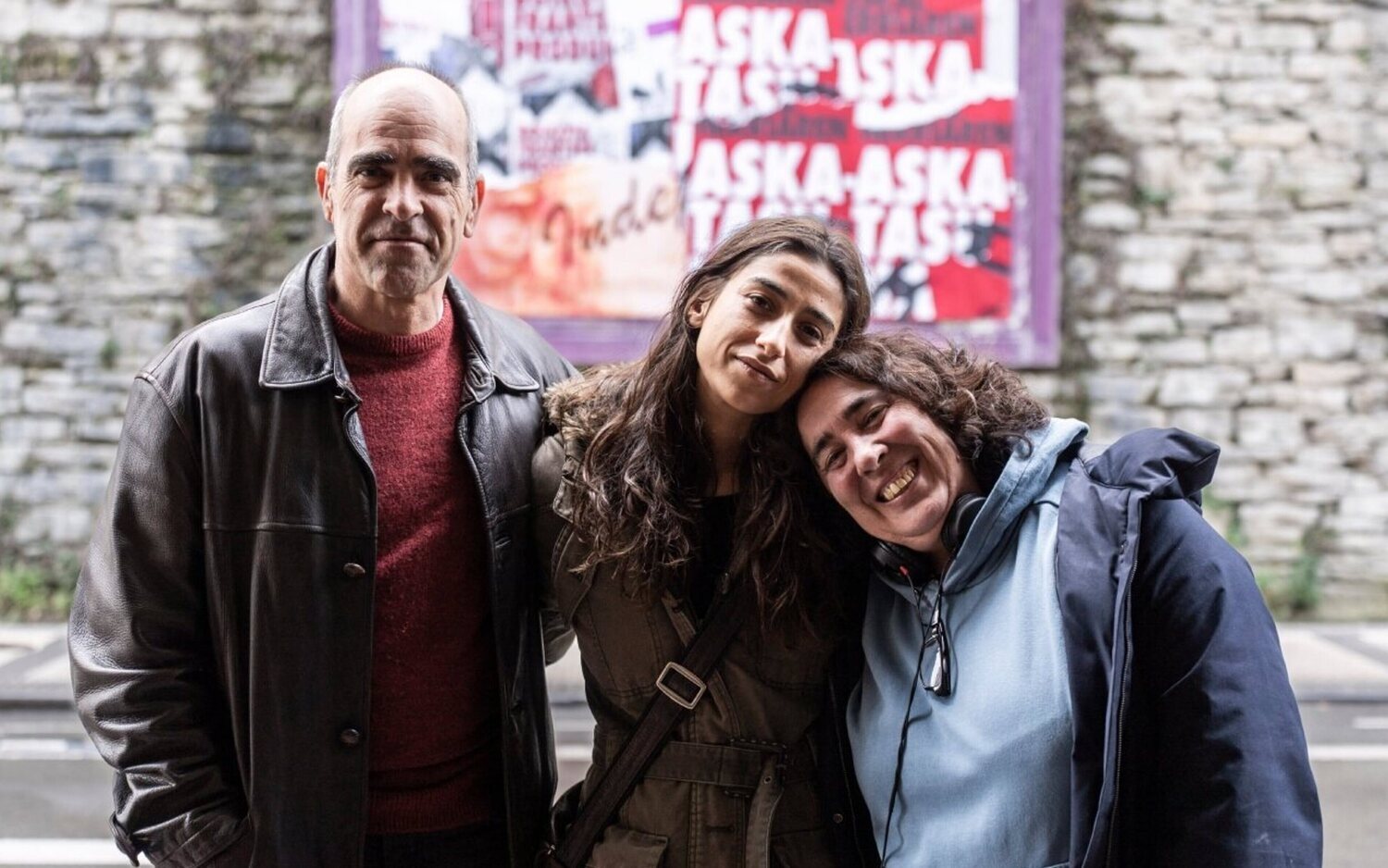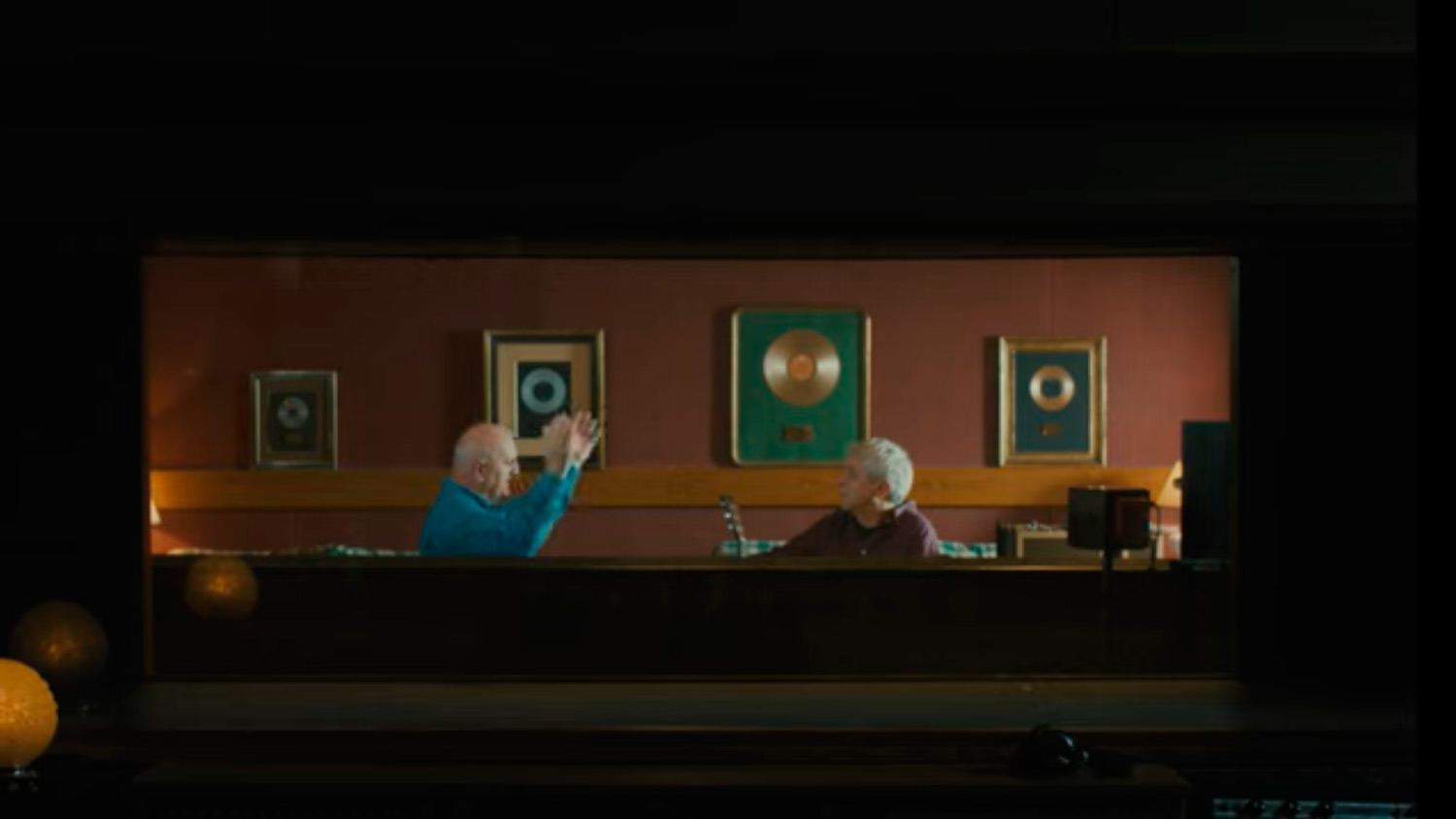"Today a movie like 'Tasio' was not going to go ahead."
- The actor and filmmaker Patxi Bisquert (Zizurkil, Gipuzkoa, 1952) is making a great effort in recent years to push forward the Ombuaren itzala project. He wants to put on the screen the life of bertsolari Pedro Mari Otaño and receive funding in auzolan. Well, this summer, you're going to start rolling the movie in Argentina. It's now going from town to village, presenting the project and inviting you to buy the 30,000 tickets put for sale.
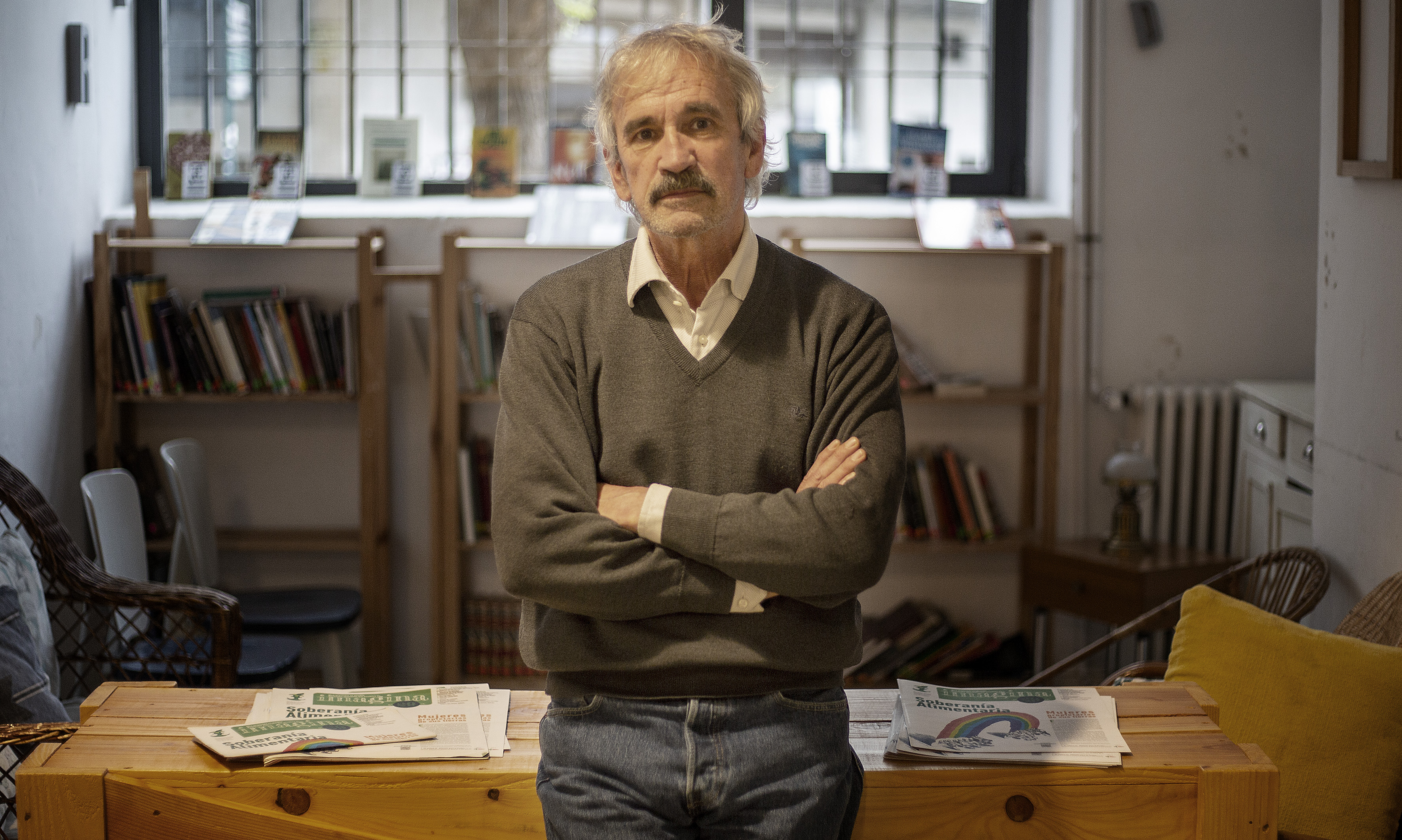
What does Pedro Mari Otaño have to star in a movie?
It's a very interesting person. On the one hand, because it was weird among the bertsolaris of its time. Most of the bertsolaris back then were Carlists, and this was liberal, a bit weird. He was an expert, cultured, culturally meaningful man. And he was a pioneer, because when he had a bad throat, he used the verses, which gave a tremendous boost to the versification. Until then, as the verses were being cast, the wind carried them. He's a polyhedral person, with many edges. I would place it among the most interesting characters of the time: I compare the shadow of Otaño with that of Oteiza in the years 1950-60.
Besides being zizurkildarra...
[Laugh] Of course, I love this town a lot, and not just because I was born there. We started from a very young age singing the Coplas of Otaño. I spent five years in Zizurkil, but then we were living in Jaizubia, in Hondarribia, with my mother's cousins. When any party was celebrated, be it buried, baptized, apple harvest or meta, it was a good excuse to start singing. And to warm up the throat, they started with the cocks of Otaño to provoke it. At that time, I knew everyone. I live in Morriña because today there are very few young people who know the coplas of Otaño.
Does it consider it a personal project?Since its
inception it has been very personal. Of course, I've involved people on the road, especially the most important one for me, Koldo Izagirre. He has written very beautiful texts to me. As I wanted to keep the chronology, to talk about the evolution of Otaño, I have made the adaptation. Then there is something else: the women who have been around these kinds of famous characters have been very much suffering; now there is a lot of talk about Angela Kerexeta, who happened with Iparragirre. Madalen [María Magdalena Alberdi] would also live something like this. From a gender point of view, one of these banks was missing, some tweaks. That's what Leire Aranburu helped me in, and I'm so happy.
His era is as interesting as the figure of Otaño. Why?
It is a very interesting time, because the Basque Country, along with the loss of exiles, was disturbed, depressed and in a huge economic crisis. But at the same time, as things are, there were also years of rebirth, because then they began to create new ideas, to strengthen socialism, and to new nationalism. In our script, Txirrita tells Otaño: “We have to invent new things.” The works of Otaño offer us a chronology to analyze this time.

The film tells the last two decades of his life. Why?
These were his most fruitful years. He becomes ill from Argentina due to his nostalgia. He gets married and starts to form family. It's the decades of recovery. Today we are in a similar cycle: we have spent more time with autonomy than in the dictatorship, but this country has made little progress and perhaps in recent years we are taking steps backwards. I see the need to address new ideas and paths, to enter the era of rebirth if we do not want to stay behind as a people. I compare the time of Otaño, the years 1950-60 and current situations, as if every 60 years such cycles were given. At that time, our young people were forced to do America, and today they continue to watch how they are.
You want to get 750.000 euros for the project and you have put the challenge to get it in the neighborhood work. Why?
The big producers and television platforms of today are not interested in this story. If it's not full of violence, of sex, or if it's not one of those revisionist ETA narratives ... If the first weekend you don't have Christ's success at the window, you're broken. Today, a movie like Tasio was not going to go ahead, and they would throw it away. What we call author movies has fewer and fewer doors open. That is why we have to work other ways of seeing Basque cinema. My last film, Oreina de Koldo Almandoz, has been seen in 45 sites and had 25,000 viewers, that's nothing. And just like that, eh! The film in Basque that has been seen most has been large, but premiered throughout the state has had 150,000 spectators, with a budget of 4 million euros.
And so how do we do that?
We hope that this film will be seen, at least, in one hundred places in Euskal Herria. In addition, being focused on the new generations, we are collaborating with the network of Ikastolas and Public Schools, which the students will see for free. I want to make people, to bring the fruits back to the people and to bring our young people to Otaño. What we are asking is for parents to collaborate in buying tickets. We have put 30,000 on sale and we hope that they will all be sold. With the ikastolas there will only be 65,000 spectators, and that will be doubled in the public network. Over 200,000 people will see it. What we are looking for is for Basque cinema to be extended to other areas as well.
his life, who loves this country very much, and also Galicia, where they are my children. In the world of film, I know myself as Tasio, especially here in Navarra. It's been 37 years since we made the film, and it's still good to have so much success and so much impact. I've made more movies, the last Oreina. They have also been led by me, some works I did in Galicia. I like to make movies, and most of all I use the words of others, I like to use poetic texts. And the cinema that I like is very much linked to the earth and freedom.”
No other land dokumentalaren zuzendari Hamdan Ballal kolono sionistek jipoitu zuten astelehenean bere herrian, beste hainbat palestinarrekin batera, eta Israelgo militarrek eraman zuten atxilo ondoren. Astarte goizean askatu dute.
Donostiako Tabakaleran, beste urte batez, hitza eta irudia elkar nahasi eta lotu dituzte Zinea eta literatura jardunaldietan. Aurten, Chantal Akerman zinegile belgikarraren obra izan dute aztergai; haren film bana hautatu eta aztertu dute Itxaro Bordak, Karmele Jaiok eta Danele... [+]
35 film aurkeztu dira lehiaketara eta zortzi aukeratu dituzte ikusgai egoteko Euskal Herriko 51 udalerritan. Euskarazko lanak egiten dituzten sortzaileak eta haiek ekoitzitako film laburrak ezagutaraztea da helburua. Taupa mugimenduak antolatzen du ekimena.
Pantailak Euskarazek eta Hizkuntz Eskubideen Behatokiak aurkeztu dituzte datu "kezkagarriak". Euskaraz eskaini diren estreinaldi kopurua ez dela %1,6ra iritsi ondorioztatu dute. Erakunde publikoei eskatu diete "herritar guztien hizkuntza eskubideak" zinemetan ere... [+]
Geroz eta ekoizpen gehiagok baliatzen dituzte teknologia berriak, izan plano orokor eta jendetsuak figurante bidez egitea aurrezteko, izan efektu bereziak are azkarrago egiteko. Azken urtean, dena den, Euskal Herriko zine-aretoak gehien bete dituztenetako bi pelikulek adimen... [+]
Otsailaren 24tik eta martxoaren 1era bitartean, astebetez 60 lan proiektatuko dituzte Punto de Vista zinema dokumentalaren jaialdian. Hamar film luze eta zazpi labur lehiatuko dira Sail Ofizialean; tartean mundu mailako lau estreinaldi eta Maddi Barber eta Marina Lameiro... [+]
A conference for architects has just been held in Madrid to discuss the crisis of the professional architect. They have distinguished the traditional and contemporary way of being an architect. What is traditional? From the epic architect who appears in The Brutalist, where... [+]
Itoiz, udako sesioak filma estreinatu dute zinema aretoetan. Juan Carlos Perez taldekidearen hitz eta doinuak biltzen ditu Larraitz Zuazo, Zuri Goikoetxea eta Ainhoa Andrakaren filmak. Haiekin mintzatu gara Metropoli Foralean.









